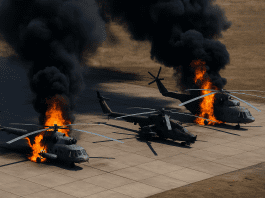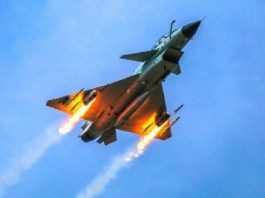Tensions are rising fast between Cambodia and Thailand as a new border dispute draws international attention. A recent claim by a top Cambodian official has caused alarm across the region. The statement suggested that Cambodia now has missiles capable of reaching Thailand’s capital, Bangkok.
Border Dispute Turns Volatile with Military Boasts
These remarks come at a time when both countries are experiencing friction along their shared boundary, especially in the area known as the Emerald Triangle. This region, located near Laos, is known for overlapping territorial claims. Recent incidents, including the death of a Cambodian soldier in May during a short exchange of gunfire, have only made the situation worse.
What makes the current situation more serious is the kind of weapons involved. Many of the arms used by Cambodia are made in China. Cambodia is heavily dependent on China for its defense supplies. Reports suggest that nearly 95% of its weapons come from Chinese manufacturers. These include advanced rocket systems and other military equipment.
Thailand, too, buys a large portion of its weapons from China—around 44% of its total imports. However, Thailand has a much bigger military budget and more advanced systems compared to Cambodia. Despite this, the idea that missiles from Cambodia could reach Bangkok has caused concern, especially among defense analysts and regional leaders.
Both Cambodia and Thailand are traditionally seen as friendly countries in Southeast Asia. But historical disputes and poorly marked borders have led to problems in the past. This latest development has raised fears that these tensions could lead to more serious confrontations.
Snubbed by America, Thailand Turns to Sweden: $596M Gripen Jet Deal Seals Air Force Shift
Made-in-China Weapons Now at the Center of Southeast Asia’s Tensions
At the heart of the rising tension are weapons supplied by China. China is one of the biggest exporters of military gear to Southeast Asia. Over the last few years, both Thailand and Cambodia have purchased various weapons from China, including long-range rocket systems and missile defense tools.
According to military analysts, Cambodia may not yet have the kind of technology needed to hit Bangkok with high accuracy. Experts say the country lacks fighter jets that can carry long-range missiles. Also, Cambodia’s overall military strength is far below Thailand’s. Thailand has more advanced air defense systems, better training programs, and a larger military budget.
Still, the remarks about having the ability to strike the Thai capital have created fear and confusion. Questions are being raised about whether these weapons could really be used and what role China might play if things go out of control.
One Chinese defense analyst stated that China’s weapons are for defensive use only. He emphasized that once these weapons are sold, they belong fully to the purchasing country. That means Cambodia has the right to use them as it wishes. However, the same analyst also said China would prefer peace between its two long-time allies.
Iran Chooses J-10C Fighters to Confront Israel’s F-35I Supremacy
The situation becomes even more complicated because China has close ties with both countries. Cambodia has been a strong supporter of China in regional matters, while Thailand maintains a strong relationship not just with China, but also with the United States. This triangle of relationships puts Beijing in a tricky position as tensions rise between its two friends.
Calls for Restraint as Regional Concerns Deepen
As the situation heats up, several international observers are urging both countries to show restraint. There are calls to avoid any military action and to settle disputes through peaceful dialogue. These calls are growing louder as fears spread that a local dispute could turn into a larger regional issue.
Many border areas between Thailand and Cambodia were poorly mapped during colonial times. This has led to disagreements over who owns what. Past attempts to resolve these disputes through international courts have seen mixed results. Cambodia once won a case involving an ancient temple, but Thailand still prefers to handle such issues through direct talks.
Meanwhile, some experts are suggesting that regional organizations could step in. Groups like ASEAN, which represents countries across Southeast Asia, are known for promoting peace and cooperation. Some believe that these groups may be the best way to keep the situation under control.
Adding to the concern, reports say that China has recently set up an international mediation group in Hong Kong. This group could help countries in Asia resolve disputes before they turn into conflicts. Still, the focus now remains on how Thailand and Cambodia manage the situation.
China has not made any public comments about the latest remarks, but it has previously advised countries to avoid using its weapons in aggressive ways. While Cambodia says its statements are a show of strength, Thailand has not responded directly, possibly trying to avoid adding fuel to the fire.
For now, the world watches closely as two neighboring nations face off with high-tech military gear. The worry is not just about missiles or military strength, but about how quickly words can turn into dangerous actions when powerful weapons are involved.







